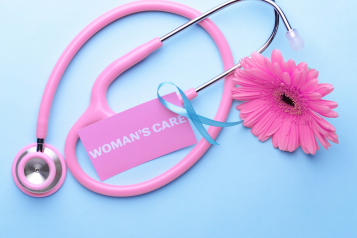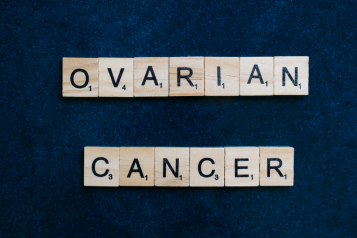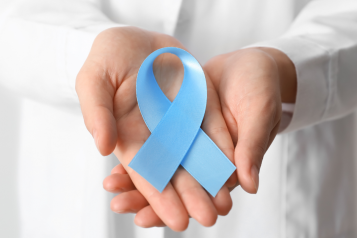How much do you know about Ovarian Cancer?

- Ovarian cancer affects the 2 small organs (ovaries) that store the eggs needed to make babies.
- Anyone with ovaries can get ovarian cancer, but it mostly affects women over 50.
- Sometimes ovarian runs in families.
- The symptoms of ovarian cancer, such as bloating, are not always obvious.
- Ovarian cancer is often diagnosed late, but early diagnosis can mean it is more treatable.
Know the symptoms
It can be difficult to spot ovarian cancer as the symptoms can so often be caused by something else.
Symptoms of ovarian cancer include frequently (roughly 12 or more times a month) having:
- a swollen tummy or feeling bloated
- pain or tenderness in your tummy or the area between the hips (pelvis)
- no appetite or feeling full quickly after eating
- an urgent need to pee or needing to pee more often
Other symptoms of ovarian cancer can include:
- indigestion
- constipation or diarrhoea
- back pain
- feeling tired all the time
- losing weight without trying
- bleeding from the vagina after the menopause
What causes ovarian cancer?
Your risk of developing ovarian cancer increases with age. More than half of all cases in the UK are in women aged 65 and over.
Anyone with ovaries can get ovarian cancer. This includes women, trans men, non-binary people and intersex people with ovaries.
You may have a higher chance of getting ovarian cancer if you:
- inherited a faulty gene, such as the BRCA genes or those linked to Lynch syndrome
- had breast cancer or bowel cancer
- had radiotherapy treatment for a previous cancer
- have endometriosis or diabetes
- started your periods at a young age or went through the menopause late (over 55) or have not had a baby – because these things may mean you've released more eggs (ovulated more)
- have never used any hormonal contraception, such as the pill or an implant.
- Are taking hormone replacement therapy (HRT)
- are overweight
- smoke
You can lower your risk of getting ovarian cancer by:
- quitting smoking
- staying a healthy weight or lose weight if you're overweight
- talking with a GP about possible tests or treatment if ovarian cancer runs in your family.
Do you have ovarian cancer?
What has your experience been like? Is there anything you'd like to see change for other people? Tell us your story here


